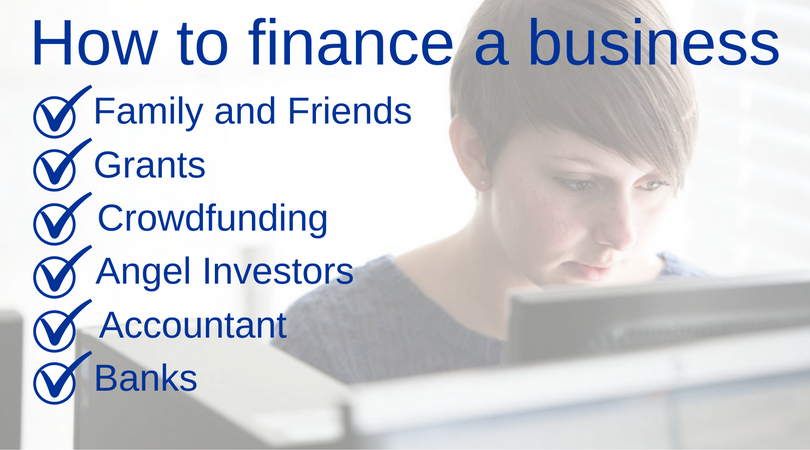Firstly, you need to be sure that you actually need financing to get your business off the ground. Most people mistakenly believe you need vast quantities of cash to buy premises and stock but that’s not always the case. Using the process of Lean start-up, you may be able to get customers to purchase your product/service before you actually have it. Most online companies don’t need a lot of capital to get started but if you do there may be alternative ways to fund your start-up.
- Talk to an accountant. Hub for Innovation and Enterprise has a great network of financial mentors and accountants who are happy to dedicate free time and support to student businesses. To make contact with a financial mentor email unikenthub@kent.ac.uk
- Take your business plan to your bank to find out what kind of loan you will be able to access. Be aware that not all banks will provide loans to start-up businesses due to the risk involved so be as prepared as you can with all of the right information including a well thought out cash-flow forecast.

- Look for small grants. Grants normally only apply to a specific project or aspect of your business rather than its overall development. The most common types of grant are for research and development (R&D), training employees, securing and creating jobs, innovation, conservation, or creating new green technology or reducing carbon emissions. Assess your needs before you start searching. Make an assessment of how much money you need and precisely what for. You may be able to get information about appropriate grants by consulting our advisor or using online funding databases such as GRANTfinder or j4b.
- Crowdfunding is the new kid on the block for small start-up funding. Websites such as Indigogo and Kickstarter are prefect for starters but it’s worth finding a platform that’s right for your business and identity. Whether you’re a creative company, a social company, finance-based, there will be a site that suits your needs best. It will be a much easier sell for you if you can show that you already have support for your business. You could do this by drumming up backing from friends and family to make it look like you are already a success in getting investment. You should have a detailed plan of exactly what you are planning to do with the extra capital. People don’t want to just throw their money at you without proof that you have a strategy for how their money will best go to use. Don’t forget to offer your investors incentives – Discounts, special deals, their name on a plaque? This gives people a real sense of value in putting their cash on the line.

- Business Angel Investors are great if you’re trying to secure finance for your business, and get help and advice from more experienced business people while you’re at it. Angels are individuals who have previously run their own business and now have funds to invest. They can use their money and expertise to invest in your business while mentoring and helping you to grow at the same time. In return for their investment and time, they’ll take a share of your business so choose wisely. Log on to the British Business Angel Association (BBAA) – it lists members according to location and allows you to find out more about them.Before you get a contract drawn up, hammer out the terms of the deal – The deal may not be purely financial: it could include details about the amount of time an angel will spend nurturing your business. Make sure you’re clear about the level of investment, share of equity and other terms and get legal advice before signing on the dotted line. Don’t sign unless you’re completely happy. You’re giving away a slice of your business. If the first angel isn’t perfect, there’s probably one out there who is.
- Redraft your business plan according to the finance you have available.

